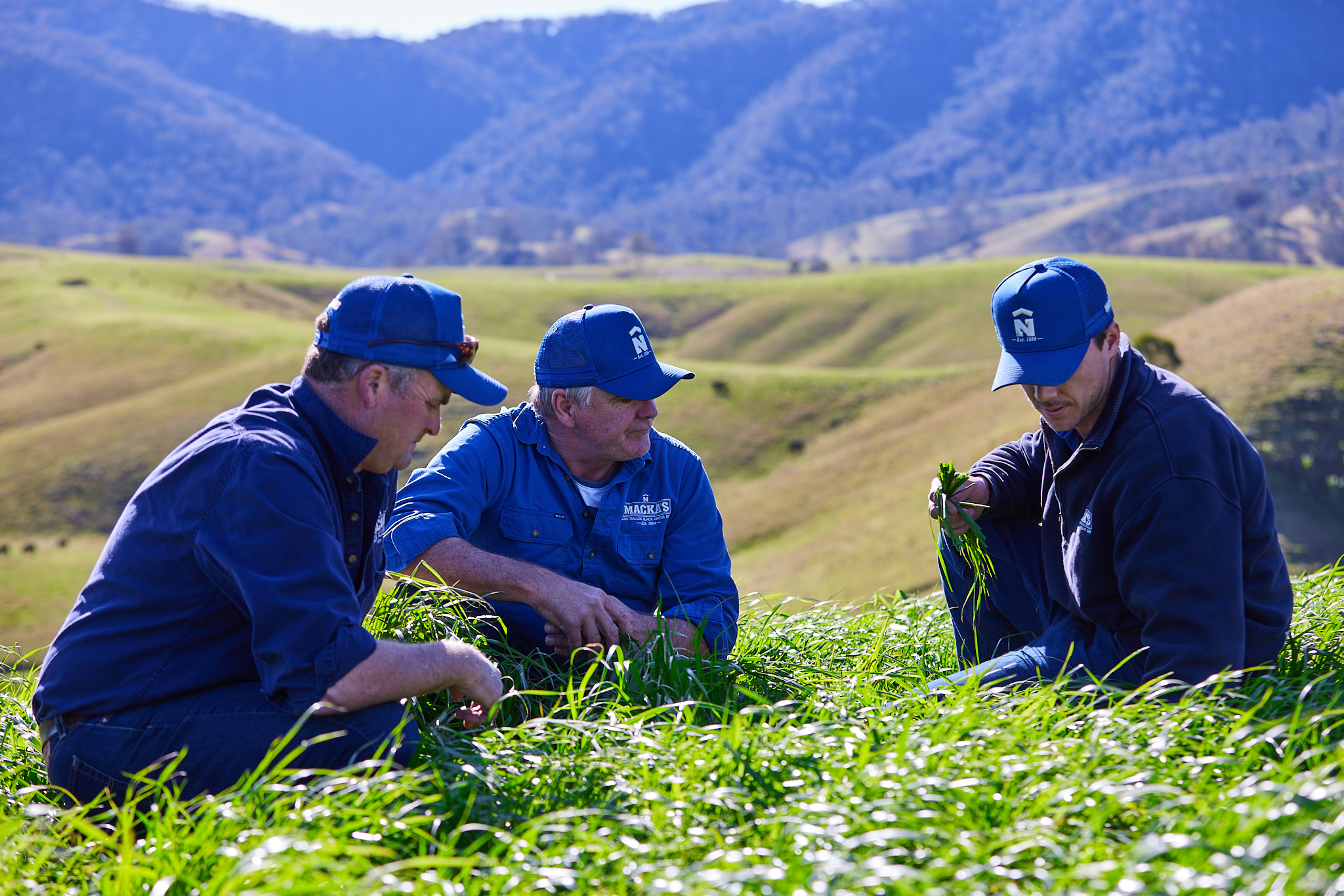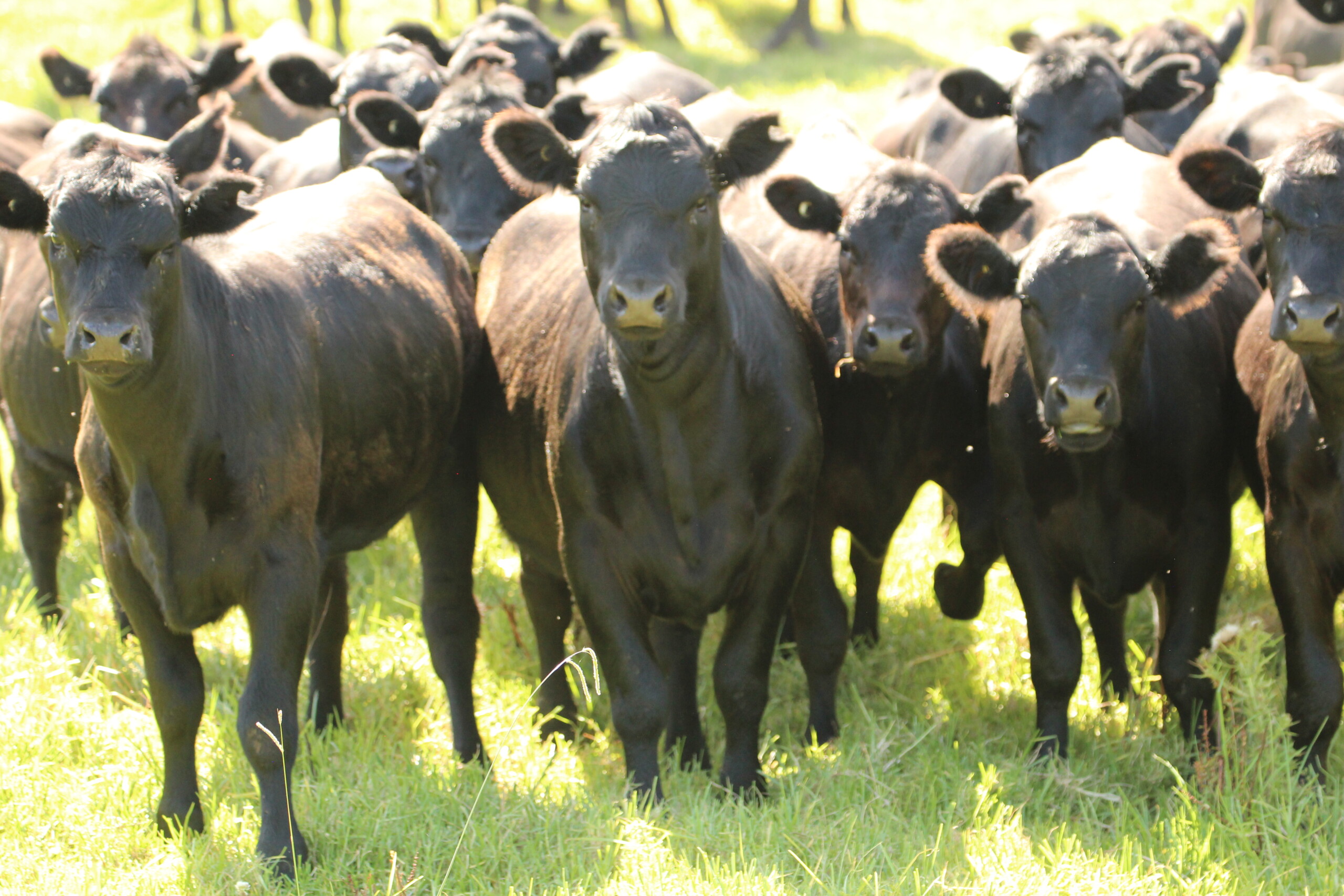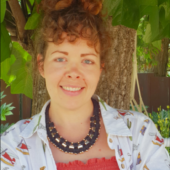More than a marketing ploy: Why Macka’s carbon neutral cattle sale is a win for Australia’s red meat industry
Just another cattle sale? Far from it. Beef producer, Robert Mackenzie has hosted Australia’s first carbon neutral cattle sale. Not just a marketing ploy for his family’s paddock-to-plate enterprise, Macka’s Australian Black Angus, Robert called the sale the beef industry’s ‘proof of concept’ – evidence it is working towards its Carbon Neutral 2030 target.

Fourth-generation beef producer, Robert Mackenzie, Managing Director of Macka’s Australian Black Angus, sold 700 cows and heifers at the March 2024 sale, bred and raised through the family’s carbon neutral production system.
For an industry working towards a sector-wide goal of being carbon neutral by 2030 (‘CN2030’), this sale was an important test case – proving that carbon neutral production can be achieved on an enterprise level.
View this post on Instagram
So, as the red meat industry inches closer to its 2030 deadline, what can the Mackenzie’s experience tell Australian producers about raising carbon neutral cattle?
Proving Australia’s commitment to carbon neutral beef
Cows emit methane and CO₂ as part of their normal metabolic processes, and the animals sold in Gloucester, New South Wales (NSW) were no different.

Corey Ireland, Operations Manager for Mackas, Robert Mackenzie, and Jack Mackenzie. Over the last three years the Mackenzie’s have commissioned around 1,400 soil tests to identify where carbon levels are good; where it needs to be built; and how effectively new carbon is being stored within the soil.
Mackas Black Angus cattle’s carbon neutral status comes from the production system in which they were raised up until the point of sale; a system where enough carbon was sequestered (or emissions avoided) to ensure that, whatever volume the animals produce, it was never enough to tip the farm’s carbon ledger into the red.
The fact that, right now, those cattle will be emitting GHG in the breeding herds of enterprises which are unlikely to be carbon neutral misses the point of the sale entirely.
“Around the world, Australia is renowned for quality beef – and now, carbon is another characteristic that makes up the determination of quality,” explained Robert.
RELATED: Five truths we need to spur Australia’s agrifood producers into faster action on carbon
“But I often feel like producers are travelling a road with no map, and there is no one there to guide us on carbon. And mentally, that can be a tough road.
“That’s why this carbon neutral sale was so important,” he continued. “To show not just fellow producers, but the world, that the industry is working towards the CN2030 target and it’s achievable.”
Now, Robert is on a mission to help other producers find their way on the low carbon road, too.

The next biggest impact on the Mackenzie carbon balance will come from the family’s commitment to genetics – Rawburn Aberdeen Angus Genetics.
The Mackenzie ‘How to Guide’ for carbon neutral production
Sceptics might argue that the Mackenzie’s are fortunate to farm on the Mid North Coast of NSW, an area known for the rich earth and reliably high rainfall that lends itself to sequestering carbon.
“But that didn’t make us carbon neutral,” explained Robert.
“We’ve implemented practice change from the front gate to the back. Not by planting 200,000 trees, but by making better choices on-farm.”

Robert MacKenzie took part in a panel discussion on the importance of measurement in sustainability at evokeAG. 2023.
RELATED: Growing opportunities for natural capital: A new frontier for Australia’s agrifood sector
The Mackenzie ‘How to Guide’ for carbon neutral beef production includes many activities efficient Australian beef producers are already doing:
- More regular and higher density stock rotation.
- Solar pumps instead of diesel-powered.
- Solar electricity generation, “Anywhere where there’s enough roof space for an array.”
- GPS-guided variable rate fertiliser application.
- Checking pasture once stock have been removed to see what – if any – management boost is needed: aeration, fertiliser, mulching, or direct drilling with a mix of carbon-hungry pasture species.
- A multipurpose tractor configuration with a fertiliser spreader at the front and mulcher at the rear, which halves labour and diesel required for soil amelioration.
- Thoughtful water reticulation system based on the rule that no animal need walk more than 800 metres for water, preserving their precious energy for weight gain.
Big genetics investment drives big sustainability gains
The next biggest impact on the Mackenzie carbon balance will come from the family’s commitment to genetics – Rawburn Aberdeen Angus Genetics.
“Animals with shorter gestation, faster growth, better fertility, improved feed to weight conversion; all these traits deliver more beef per unit of GHG output. That means a lower carbon footprint for our enterprise,” said Robert.

Robert Mackenzie, Managing Director of Macka’s Australian Black Angus, sold 700 cows and heifers at the March 2024 sale.
And it could mean a lower carbon footprint across the Australian beef industry, too. From their $140,000 female, Rosebud, to prized bulls, Thunderstruck ($360,000) and Iceman ($240,000), the Mackenzie’s have been buying up big on the genetics that can breed improved sustainability into the Australian herd.
A recent deal with Rawburn Aberdeen Angus Genetics accelerates this goal, giving the Mackenzie clan sole Australian rights to the genetics of the herd widely considered to be the highest performing in the world.
RELATED: Cracking the whip of innovation: Meet the Beef2024 evokeAG. Pitch In The Paddock finalists
“Whether they want commercial females or seed stock, our customers look to us for the best genetics. Alongside temperament, good mothering, carcass traits, etc., we view sustainability as just another link in our genetics chain,” said Robert.
“The result is not just a quality animal at a competitive price, but one which can help breed sustainability into every herd.
Every producer can shift the needle on carbon
Robert is a firm believer that – while some industry leaders and academics debate the soil carbon methodology, the CN2030 commitment, and how we can get there – producers aren’t powerless.
But where to start?
“The first thing we did was undertake an audit of emissions across our business,” explained Robert. “Not just our cattle, but energy, fuel, waste generation, fertiliser use – to work out where we can cut emissions while still maximising productivity. We used Dr Julian Hill from Ternes Scientific to oversee our audit.”

The Mackenzie’s have been buying up big on the genetics that can breed improved sustainability into the Australian herd.
“Step two was undertaking soil tests to understand what soil carbon looks like to our business. We then looked for external support and engaged Hayden Hollis from Agricore Agricore Group | Agronomy Farming Solutions”
RELATED: Why on-farm sustainability measurement is worth the effort
Every year since 2017 (when Meat and Livestock Australia (MLA) first announced the CN2030 target) Robert started taking soil samples to understand their carbon levels. Over the last three years the family has commissioned around 1,400 soil tests across the family’s eight properties – 16,000 acres – to identify where carbon levels are good; where it needs to be built; and critically, how effectively new carbon is being stored within the soil.
Results from 2023 showed a 40% average increase in soil carbon, at 540kg Co2 sequestered per hectare – with the 2024 samples taken in February currently at the lab, Robert is expecting around the same results again.
RELATED: Invisible gains: The cattle business cutting carbon emissions
View this post on Instagram
And it was this result which allowed the Mackenzie’s to verify their carbon neutral status.
“We could have gone down the path of turning that carbon into tradable credits,” explained Robert. “But we’ve worked hard to achieve the savings that allow us to claim – and verify – that we are carbon neutral.”
“To us, selling offsets means selling away our ability to trade as a carbon neutral producer, in a future world where markets, financiers (and possibly, regulators) are going to require that type of production.
“I know there’s conjecture in our industry about insetting vs offsetting, and I’m not here to tell other producers how to run their operation,” he added.
RELATED: In the rush to sell carbon credits, bear in mind – there are no surplus offsets in agriculture
“But I’ve come to believe that holding onto our carbon is likely to be the best insurance policy we’ll ever take out in what is still unchartered waters.”
Sign up to hear more from the thought leaders and change makers about the role of agrifood tech innovation in shaping a sustainable future and receive updates on evokeAG. 2025 in Brisbane, Queensland on 18-19 February.
